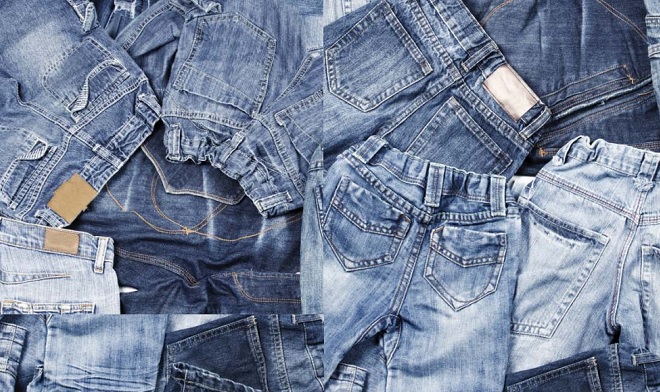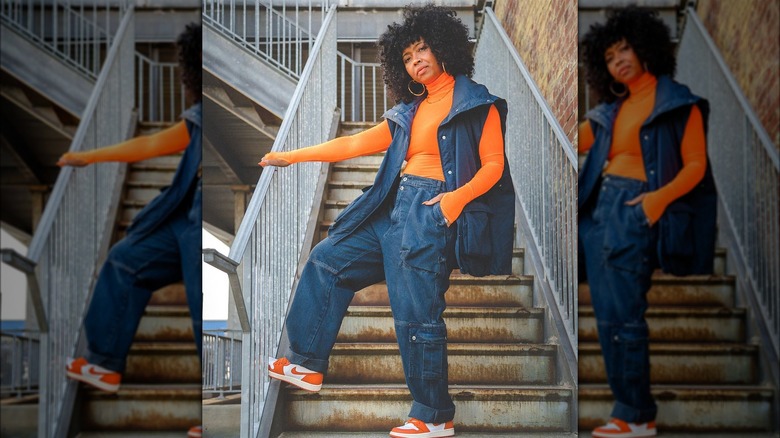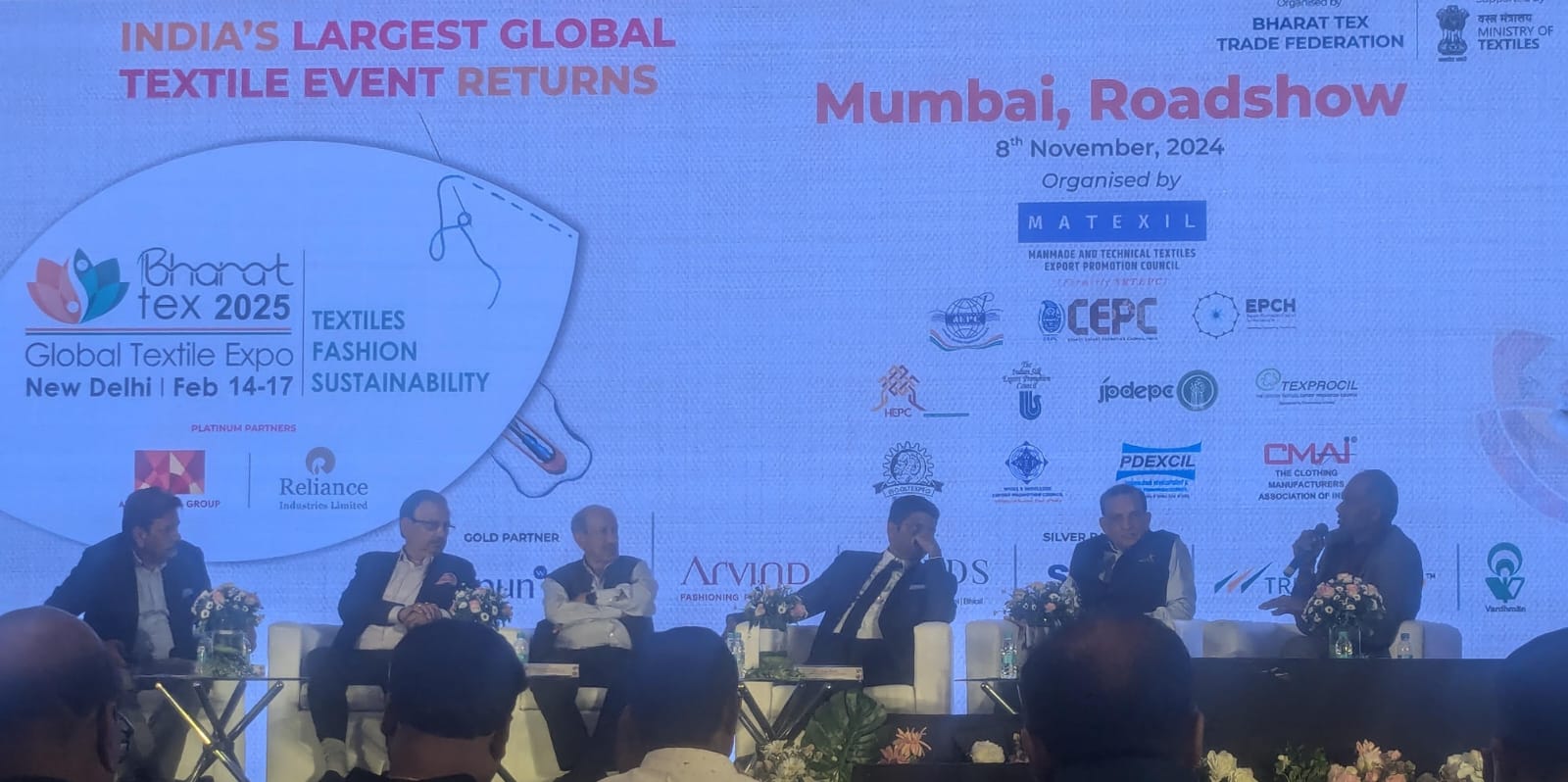FW
Kering's revenue for Q3 2024 reached €3.8 billion, marking a 15 per cent decline as reported and 16 per cent on a comparable basis. This downturn includes a 1 per cent negative currency effect and a 2 per cent positive scope effect, driven by the Creed consolidation. François-Henri Pinault, Chairman and CEO, emphasized the group’s focus on long-term sustainable growth despite unfavorable market conditions impacting short-term performance.
Retail sales were down 17 per cent, largely due to reduced store traffic, particularly in Asia-Pacific and Japan. North America and Western Europe showed mixed results across Kering’s portfolio, while wholesale revenue dropped 12 per cent.
Gucci saw a steep 26 per cent decline in revenue, down to €1.6 billion, with retail sales falling 25 per cent due to tough market conditions, especially in Asia-Pacific. Gucci’s wholesale revenue fell 38 per cent, reflecting its strategic realignment.
Yves Saint Laurent reported a 13 per cent revenue drop to €670 million. Retail sales decreased 12 per cent, and wholesale sales fell 20 per cent, despite continued success in its leather goods and fashion shows.
In contrast, Bottega Veneta grew its revenue by 4 per cent to €397 million, with a 9 per cent increase in retail sales driven by strong performance in North America and Western Europe. Wholesale sales, however, were down 10 per cent.
Other Kering Houses, including Balenciaga and Alexander McQueen, generated €686 million in revenue, down 15 per cent. Balenciaga’s leather goods performed well, while Alexander McQueen’s rebranding received positive reception.
Kering Eyewear and Corporate segment revenue rose by 32 per cent, driven by a 4 per cent growth in eyewear sales and contributions from Kering Beaute and Creed.
Amid economic uncertainty, Kering expects its 2024 operating income to reach approximately €2.5 billion. The group remains focused on optimizing costs and driving long-term growth for its luxury brands.
Bangladesh's apparel exports to the European Union (EU) have seen a mixed bag in 2024. While August saw a 3.1 per cent increase, driven by knitwear and woven garment exports, the overall trend for the first eight months remains negative.
Knitwear exports from Bangladesh rose by 1.4 per cent in August, totaling €1 billion. Woven garment exports experienced a stronger growth of 6.2 per cent, reaching €602 million.
However, Bangladesh's total apparel exports to the EU for the first eight months of 2024 dropped by 3.51 per cent to €11.90 billion. Knitwear exports in this period fell by 6.51 per cent, while woven garment exports saw a slight increase of 1.05 per cent.
The EU's total apparel imports between January and August 2024 also decreased by 3.62 per cent. Despite these challenges, Bangladesh remains optimistic about future growth, citing improving EU economic conditions and government efforts to boost exports.
While Bangladesh's exports have fluctuated, China, the largest apparel exporter to the EU, has seen a steady increase. Turkey, the third-largest exporter, experienced a decline.
The overall trend in the EU apparel market has been a decline in imports, reflecting reduced apparel consumption. This has affected exports from various suppliers, including Bangladesh.
Moving forward, Bangladesh will need to navigate the challenges of fluctuating demand, competition from other suppliers, and the ongoing impact of global economic factors.
India's leading department store chain, Shoppers Stop, reported a second consecutive quarterly loss. The company attributed the decline to a combination of factors, including high inflation, reduced discretionary spending, and fewer wedding dates.
The department store chain's CEO, Kavindra Mishra, noted that subdued demand during the second quarter was primarily due to extended rains and a weak consumer sentiment. Rising inflation has forced consumers to prioritize essential goods, resulting in reduced spending on non-essential items such as apparel.
Despite the overall downturn, Shoppers Stop's beauty and personal care (BPC) segment continued to show growth, with sales increasing by 10 per cent during the quarter. This segment, which contributes over a fifth of the company's revenue, benefits from the growing Indian beauty market, which is expected to reach nearly $47 billion by 2032.
Overall, Shoppers Stop's revenue from operations rose 7 per cent to 11.15 billion rupees. However, the company's net loss for the quarter ended September 30 amounted to 205.9 million rupees, compared to a profit of 27.3 million rupees a year earlier.
As the Indian retail landscape continues to evolve, Shoppers Stop and its competitors are facing increasing pressure to adapt to changing consumer preferences and economic conditions.
Thai sportswear manufacturer Pilot Knit Garment, part of the Yong Udom Textile Group, has selected Coats Digital’s FastReactPlan to digitize its manual planning processes. The solution aims to enhance efficiency, optimize On-Time Delivery Performance (OTDP), and reduce lead times by improving planning and forecasting accuracy across departments.
Established in 1986, Pilot Knit Garment, headquartered in Samutsakorn, Thailand, manufactures sportswear for global brands like Nike, Converse, and Jordan, producing 200,000 pieces per month with over 660 employees. Despite having access to high-quality fabrics, the company faced challenges managing production with manual Excel-based planning, leading to under- or overcapacity issues and extended lead times.
Managing Director Ampon Ruayfupan expects FastReactPlan to be transformative, improving fabric management and capacity utilization. The solution, part of Coats Digital’s Manufacturing Solution Suite, offers dynamic, real-time production updates, enabling Pilot Knit Garment to plan months in advance and respond swiftly to last-minute changes. Coats Digital's Haruethai Phaleesem emphasized the seamless integration with Pilot Knit’s Tega ERP system, providing greater visibility and streamlining production planning. The company aims to enhance efficiency, reduce costs, and maintain its competitive edge in the market.
A year after Bangladeshi garment workers faced violent crackdowns during protests for higher wages, major fashion brands like H&M and Zara are under fire for not protecting workers rights. Around 40,000 workers still risk arrest due to blank arrest warrants issued during the protests.
Today, labor rights advocates launched an international campaign urging brands to demand the dismissal of 36 legal cases against workers and protestors. Anne Bienias of the Clean Clothes Campaign criticized brands, stating they profit from the current system and have not backed union-led wage demands.
The Clean Clothes Campaign linked 45 fashion brands, including Next, Levi's, and Matalan, to suppliers who filed charges against workers. Despite initial steps, none of the cases have been cleared. To raise awareness, the campaign introduced a new tool tracking brand involvement in the outstanding charges.
The legal cases have created a climate of fear, with union leaders like KalponaAkter emphasizing the need to drop these charges to safeguard workers freedom and ensure fair wages.
Unions are also pressing the interim government to issue an executive order dropping the charges, calling on brands to support this push.
Amazon is introducing strict price caps for its upcoming low-cost storefront. The company plans to fulfill orders directly from Guangdong, China, and will offer lower fulfillment fees for items sold through this platform.
This strategy marks a notable shift for Amazon, which has not traditionally imposed such limits on seller pricing, as it aims to compete with discount retailers like Temu and Shein amid a slowdown in retail sales growth.
As Amazon pivots to maintain its market share, the success of this low-cost storefront will be critical in countering the growing influence of discount competitors and attracting price-sensitive consumers.
To support apparel sector in the state, Jharkhand Readymade Garments Association (JRGA) has launched the JRGA initiative in partnership with the Indian Garments Federation (IGF). This initiative aims to promote expansion and creativity in the RMG sector, which already benefits from a trained labor force and changing market prospects.
Abhitabh Shrivastava, General Secretary, JRGA, states, through this initiative, the association aims to establish a platform to not only strengthen ties with domestic and foreign markets but also encourage innovation, and empower regional manufacturers.
The initiative also brings together all important players from the garments industry such as retailers, designers, manufacturers, and fashion specialists under a single roof.
Compared to a 40 per cent growth in the previous year, online retailer Shein experienced a slowdown in revenue growth, rising by 23 per cent in H1, FY24, as per a report by The Information.
This decline in the company’s performance was attributed to increased competition, particularly from Chinese discount shopping platform Temu, which has gained significant traction in the U.S. market.
During the period, Shein’s profit also declined by over 70 per cent to just under $400 million. Despite this, the company’s revenue increased to $18 billion.
Known for its ultra-low-cost business model that ships directly from factories in China, Shein, sells items like $5 tops and $10 dresses, which have contributed to its rapid global expansion. Last year, the company was valued at $66 billion following a fundraising round, and it recently held informal investor meetings in preparation for a planned initial public offering (IPO) in London, according to Reuters.
Although Shein does not publicly disclose its global financial results, an October filing revealed that its UK business generated £1.55 billion ($2 billion) in revenue in 2023.

With fast fashion and overflowing landfills, the denim industry is facing a reckoning. The constant demand for new styles and washes often comes at a high environmental cost. But what if a single fabric could be the key to a more sustainable and creative approach to denim design? That's the premise behind One Denim, a groundbreaking initiative spearheaded by Kingpins Show, designer Piero Turk, and Italian wash innovators Tonello.
The genesis of One Denim
The idea of One Denim was born from a desire to challenge the status quo and inspire change within the denim industry. The project aims to demonstrate the incredible versatility of denim fabric and promote sustainable practices by showcasing a collection crafted from a single fabric.
At its core, One Denim aims to promote sustainability by reducing overproduction and waste in the denim industry. By demonstrating that a single high-quality fabric can be transformed into a diverse range of garments and washes, the project encourages designers and brands to rethink their approach to denim production. "Brands are using a lot of different denims for different styles and different washes. This also means a lot of waste," says Piero Turk, the designer behind One Denim. "One Denim should show to everybody, mills and brands, that with just one quality you can do [almost] everything. You do not need to use many different denims to develop new ideas and have variety in a collection.”
Beyond sustainability, One Denim serves as a source of inspiration for the industry. Each season, the project partners with a different denim mill to create a capsule collection comprising ten distinct silhouettes, all crafted from the same fabric. This showcases the fabric's versatility and inspires designers to push the boundaries of their creativity. Each season, One Denim partners a different denim mill to bring its vision to life. This season, the spotlight falls on Cone Denim, a historic US-based manufacturer renowned for its quality and innovation. Cone Denim's Stout fabric takes center stage, chosen for its robustness and potential for diverse applications.
The One Denim team comprises:
Kingpins Show: The renowned denim trade show provides the platform for showcasing the One Denim collection to a global audience of designers and brands.
Piero Turk: A celebrated designer, Turk lends his creative expertise to curate and co-design the collection's silhouettes, ensuring both style and wearability.
Tonello: Masters of garment finishing, Tonello utilizes its cutting-edge, sustainable wash technologies to transform the single fabric into a diverse range of looks.
Shifting perspectives
Since its inception, One Denim has made significant moves to raise awareness about sustainable denim production and inspiring creativity within the industry. By showcasing the potential of a single fabric, the project challenges conventional thinking and encourages a more conscious approach to design. One Denim is poised to continue its impact on the denim industry, promoting sustainability and inspiring innovation. The project's commitment to collaboration and its focus on pushing creative boundaries ensure that it will remain a driving force in the evolution of denim.
What’s new this season…
This season, One Denim partners Cone Denim, to highlight the versatility of their Stout fabric. The collection, debuting at Kingpins Amsterdam on October 23-24, Kingpins Hong Kong on November 21, and Kingpins New York on January 22-23, 2025, will feature 10 unique silhouettes, including classic five-pocket jeans and trucker jackets alongside contemporary pieces like vests, T-shirts, and dresses. Each garment will be treated with Tonello's sustainable wash technologies, further emphasizing the project's commitment to responsible production.
"This collaboration can inspire a visual story of how one fabric can transform into many interpretations, without constraints," says Pierette Scavuzzo, design director at Cone Denim. "One Denim serves as inspiration and a model for brands; The bigger the vision, the better, with using only one fabric.”
One Denim's message is clear: creativity and sustainability can go hand in hand. By embracing innovative approaches and responsible technologies, the denim industry can reduce its environmental impact while continuing to produce exciting and fashionable garments.












